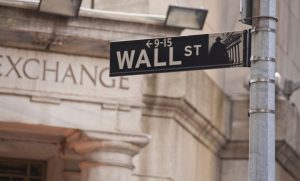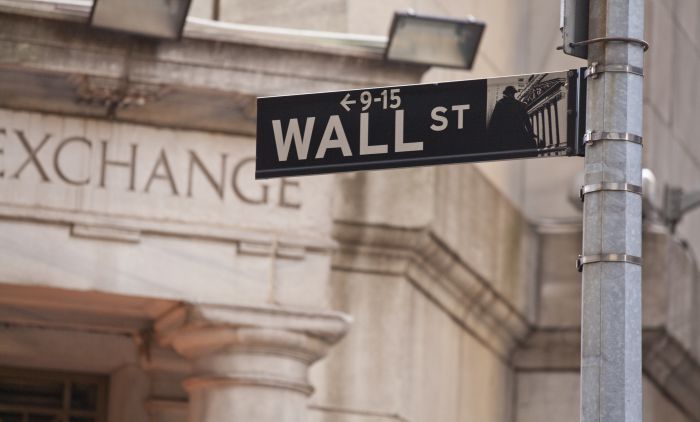Is the government’s response to the 2008 financial crisis responsible for the rise of populism in the US and Europe?; the real Google censorship scandal is its re-entry into China; Europe’s new controversial copyright law could change the Internet; and can Facebook unbreak democracy?

- The tenth anniversary of Lehman Brothers’ collapse brought with it a vast amount of interviews, analyses, research, books, callbacks and conferences (including the Stigler Center’s). “The official economic statistics …say that the American economy is fully recovered…The crisis is over. But, of course, it isn’t over,” writes David Leonhardt in the New York Times. That the most widely-cited economic statistics—the stock market, GDP growth—indicate that the 2008 financial is a thing of the past, he argues, just goes to show that “we’re measuring the economy all wrong.” Instead, the lingering effects of the crisis can be seen all around us, particularly in the public anger that led to the rise of far-right populism in the US and Europe. “It’s worth remembering that the current indicators are not a naturally occurring phenomenon. They are political creations, with the flaws, limitations and choices that politics usually involves,” he adds.
- For all the anger and disgust that Americans felt towards the government response to the financial crisis, argues Neil Irwin in the Times, “the engineers of the American crisis response got the economics mostly correct, and more right than most of those—including leading economic thinkers and prominent politicians—who were second-guessing them.” Laurence M. Ball of Johns Hopkins University, author of a new book on Lehman Brothers and the Fed, counters that policymakers could have saved Lehman brothers from collapse and did not in fact tell the truth when they told the public otherwise. (Back in 2016, we interviewed Ball about his research into the events that led to Lehman’s bankruptcy).
- “Ten years after the crash, we’ve learned nothing,” writes Matt Taibbi in Rolling Stone. “History is written by the victors, and the banks that blew up the economy are somehow still winning the narrative.”
- In Vice, Matt Stoller responds to last week’s op-ed by Tim Geithner, Ben Bernanke, and Hank Paulson and explains why the 2008 bank bailouts that the three oversaw were far less popular than FDR’s bank bailouts in the 1930s: “The response to the financial crisis was about reorganizing property rights. If you were close to power, you enjoyed unlimited rights and no responsibilities, and if you were far from power, you got screwed.”
- Meanwhile, David Dayen writes about Geithner’s resistance to a break up of Citigroup in the aftermath of the crisis, in defiance of a presidential order from Barack Obama. Present day retrospectives of the financial crisis, he writes in a separate piece, are ignoring “the most important part” of the crisis: its impact on millions whose houses were foreclosed. “Flip through the nation’s major newspapers and periodicals and you’ll strain to find a single voice of a homeowner left adrift when the housing bubble collapsed. They remain as invisible to the media and the culture as they were to policymakers in 2008.”
In the first of a 3-part series on the 2008 financial crisis, Capitalisn’t hosts Kate Waldock and Luigi Zingales discuss the causes for the crisis, including subprime mortgages, investor fraud and an ill-advised speech from former President George W. Bush. Kate also tells about Luigi about her experiences as an intern at Lehman Brothers when it collapsed.
- A New York Times report reveals on the story of James C. Katzman, a former Goldman Sachs partner-turned-whistleblower who attempted to raise concerns about unethical practices and was rebuffed.
-
This week, the Federal Trade Commission kicked off a series of public hearings to discuss whether its competition enforcement policies should be updated to better reflect the rise of market concentration and the proliferation of new technologies. “The broad antitrust consensus that has existed within the antitrust community, in relatively stable form for the last 25 years, is being challenged,” said FTC chair Joseph Simons in his opening remarks. The Washington Post’s Brian Fung, NYT’s Cecilia Kang and CNN’s Lydia DePillis report. “The FTC’s opening panel this week featured a handful of competition and consumer protection lawyers who leaned toward maintaining the status quo. Some argued that the new ‘antitrust populists’ want to move back to the 1960s and ’70s, when companies were prosecuted simply for being larger and more efficient than their competitors,” DePillis writes.
- “Google built a prototype of a censored search engine for China that links users’ searches to their personal phone numbers, thus making it easier for the Chinese government to monitor people’s queries,” reports The Intercept’s Ryan Gallagher. Jack Poulson, a senior Google scientist has resigned from the company in protest, telling The Intercept that he is one of about five Google employees to resign over the censored Chinese version of the search engine, code-named Dragonfly.
- Google was the subject of much controversy among conservatives this week, after Breitbart released a tape of the company’s first “all-hands meeting” following the 2016 presidential election, in which Google executives—including co-founder Sergey Brin and CEO Sundar Pichai—shared concerns about the election of Donald Trump. This “ridiculous scandal,” argues Kara Swisher in the New York Times, only serves to mask the real scandal involving Google: its re-entry into the Chinese market. Google, she writes, “is being falsely accused of censoring speech in the United States, when what it is really doing is mulling a return to censorship in China. If this makes you pause, it should, and Washington politicians should take all their sanctimony and direct it at the China issue, which actually deserves some scrutiny.”
- On a related note: where in the world is Larry Page?
- “I found Zuckerberg straining, not always coherently, to grasp problems for which he was plainly unprepared,” writes the New Yorker’s Evan Osnos in a revelatory profile of Mark Zuckerberg and the embattled Facebook CEO’s attempts to reckon with Facebook’s role in undermining democracies worldwide. Zuckerberg himself posted a 3,200-word manifesto this week in which he outlined a variety of measures the company has taken to fight election interference, promising that Facebook is “better prepared” to combat misinformation than it was in 2016. Meanwhile, the fact-checking partnership Facebook announced late last year with the Associated Press, Politifact, Snopes, factcheck.org and the Weekly Standard came under fire this week after the progressive site ThinkProgress accused Facebook of allowing the Weekly Standard to effectively censor one of its stories by wrongly labelling it as “false,” a label that according to Zuckerberg means a loss of 80 percent of future traffic.
- The European Parliament passed a sweeping, controversial copyright law that could very well change the Internet by, among other things, compelling search engines and news aggregators such as Google News to pay publishers a fee for displaying snippets of their content (a “link tax”). Reason.com’s Peter Suderman, meanwhile, argues that the recent push to regulate social media giant would be a “slippery slope.”
- “As consumers, as users, we love these tech companies. But as citizens, as workers, and as entrepreneurs, we recognize that their power is troubling. We need a new framework, a new vocabulary for how to assess and address their dominance,” says the increasingly influential antitrust scholar Lina Khan (a ProMarket contributor) in an in-depth profile of her work by the New York Times’ David Streitfeld. The profile also offers a telling anecdote of two former FTC officials who wrote a purportedly scholarly paper in defense of Amazon, all the while being on Amazon’s payroll.
- In a new issue brief on America’s concentration problem, the Roosevelt Institute’s Adil Abdela and Marshall Steinbaum (also a ProMarket contributor) review the estimates of market concentration in various industries since 2000 and call for antitrust enforcement agencies to acknowledge the problem.
- Richard Sackler, the former chairman and president of Purdue Pharma who made billions upon billions from the proliferation of the opioid painkiller OxyContin, has been granted a patent for a new drug that helps wean addicts from opioid addiction. Purdue, meanwhile, is being sued by Colorado’s attorney general for its “significant role in causing the opioid epidemic”—just one of more than 1,000 pending lawsuits brought against the company by states and local governments across the US. The Financial Times’ David Crow offers a detailed, harrowing investigation into how Purdue fueled America’s opioid crisis, which claimed more than 42,000 lives in 2016 alone. Crow also reveals that the Sackler family owns a second opioid manufacturer: “Rhodes Pharma, a little-known Rhode Island-based drugmaker that is among the largest producers of off-patent generic opioids in the US.”
- A pharmaceutical executive that raised the price of an antibiotic by more than 400 percent defends his decision as “moral requirement to sell the product at the highest price,” even going so far as to cite infamous pharma exec Martin Shkreli and his duty to “reward his shareholders.”
- Scott Pruitt, the former EPA head who fiercely advocated for deregulating fossil fuel companies, is in discussions to work as a consultant to a coal mining tycoon.
Disclaimer: The ProMarket blog is dedicated to discussing how competition tends to be subverted by special interests. The posts represent the opinions of their writers, not necessarily those of the University of Chicago, the Booth School of Business, or its faculty. For more information, please visit ProMarket Blog Policy.






